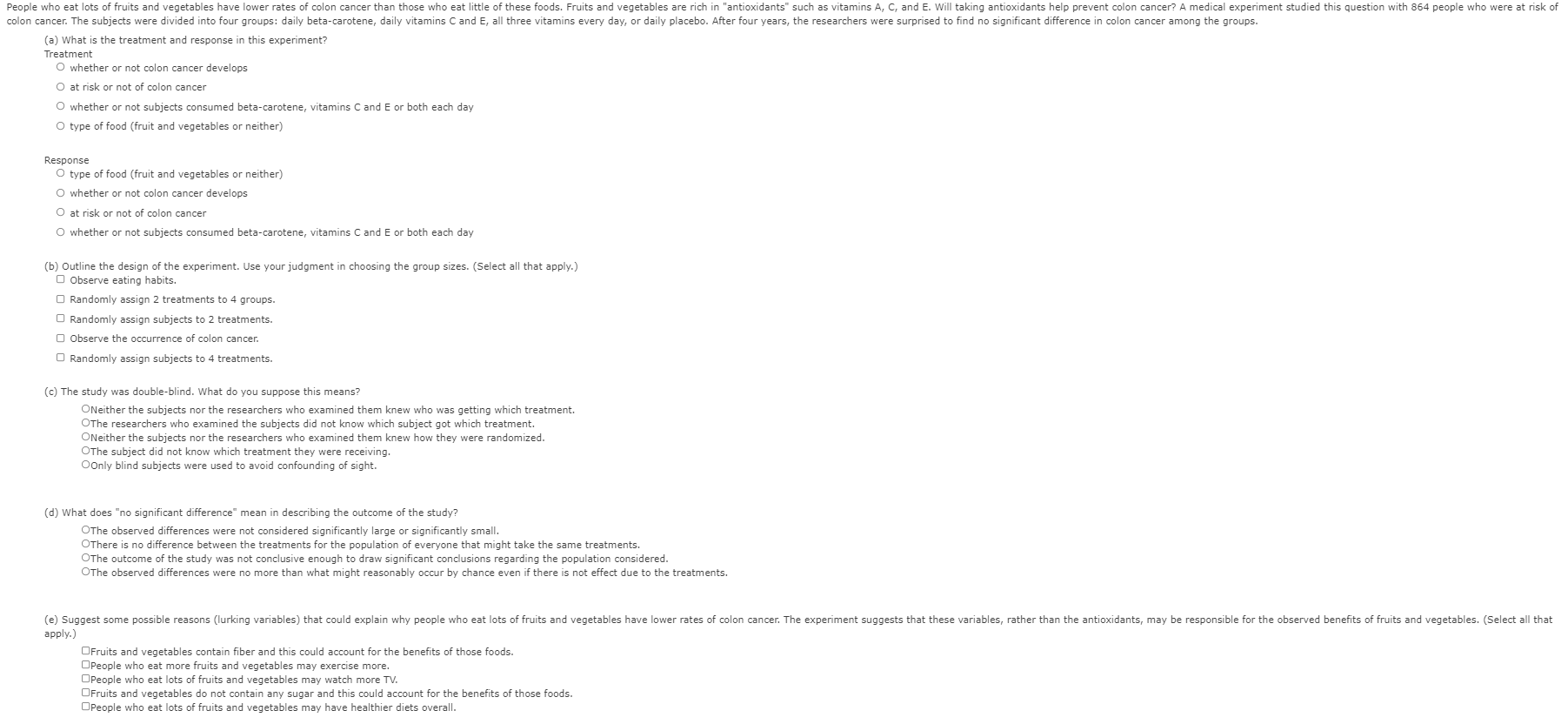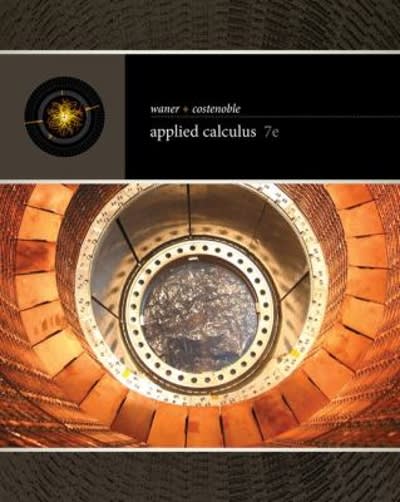question
People who eat lots of fruits and vegetables have lower rates of colon cancer than those who eat little of these foods. Fruits and vegetables are rich in "antioxidants" such as vitamins A, C, and E. Will taking antioxidants help prevent colon cancer? A medical experiment studied this question with 864 people who were at risk of colon cancer. The subjects were divided into four groups: daily beta-carotene, daily vitamins C and E, all three vitamins every day, or daily placebo. After four years, the researchers were surprised to find no significant difference in colon cancer among the groups. (a) What is the treatment and response in this experiment? Treatment O whether or not colon cancer develops O at risk or not of colon cancer O whether or not subjects consumed beta-carotene, vitamins C and E or both each day O type of food (fruit and vegetables or neither) Response O type of food (fruit and vegetables or neither) O whether or not colon cancer develops O at risk or not of colon cancer O whether or not subjects consumed beta-carotene, vitamins C and E or both each day (b) Outline the design of the experiment. Use your judgment in choosing the group sizes. (Select all that apply.) Observe eating habits. O Randomly assign 2 treatments to 4 groups. O Randomly assign subjects to 2 treatments. O Observe the occurrence of colon cancer. Randomly assign subjects to 4 treatments. (c) The study was double-blind. What do you suppose this means? ONeither the subjects nor the researchers who examined them knew who was getting which treatment. OThe researchers who examined the subjects did not know which subject got which treatment. ONeither the subjects nor the researchers who examined them knew how they were randomized. OThe subject did not know which treatment they were receiving. OOnly blind subjects were used to avoid confounding of sight. (d) What does "no significant difference" mean in describing the outcome of the study? The observed differences were not considered significantly large or significantly small. OThere is no difference between the treatments for the population of everyone that might take the same treatments. OThe outcome of the study was not conclusive enough to draw significant conclusions regarding the population considered. OThe observed differences were no more than what might reasonably occur by chance even if there is not effect due to the treatments. (e) Suggest some possible reasons (lurking variables) that could explain why people who eat lots of fruits and vegetables have lower rates of colon cancer. The experiment suggests that these variables, rather than the antioxidants, may be responsible for the observed benefits of fruits and vegetables. (Select all that apply.) Fruits and vegetables contain fiber and this could account for the benefits of those foods. OPeople who eat more fruits and vegetables may exercise more. People who eat lots of fruits and vegetables may watch more TV. Fruits and vegetables do not contain any sugar and this could account for the benefits of those foods. OPeople who eat lots of fruits and vegetables may have healthier diets overall







